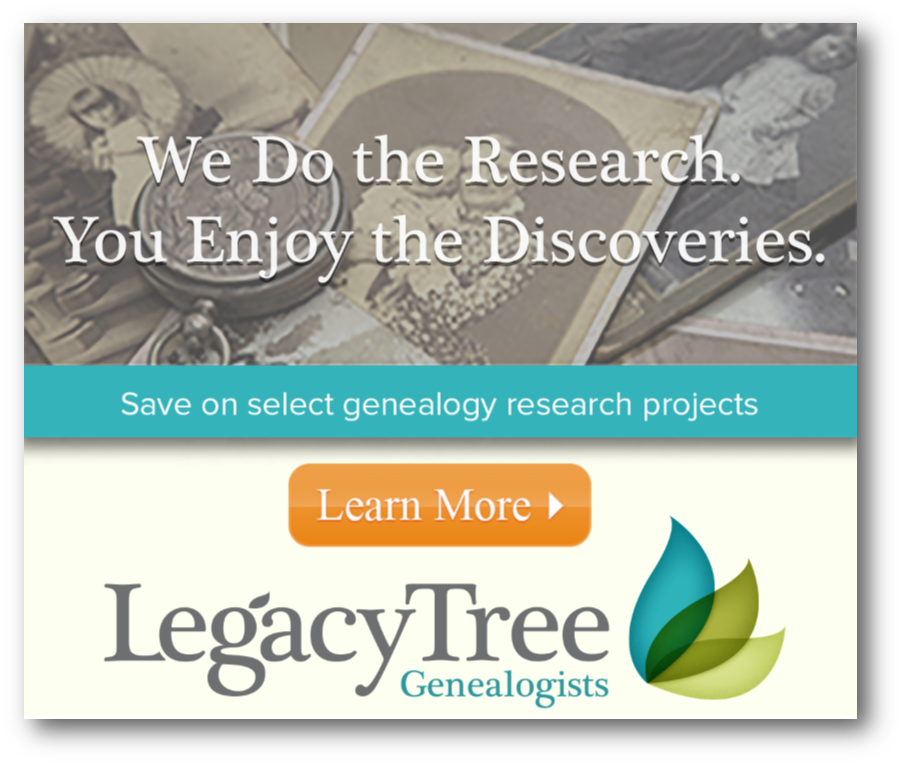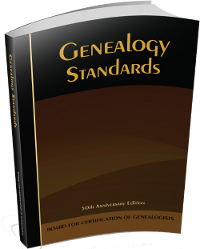Applying to Lineage Societies: Why Hire a Pro to Help You
A professional genealogist can help you apply to lineage societies. Joining is a time-honored way to honor your heritage and document your family history research. But it’s not easy! Here’s why even experienced genealogists may want to hire a professional to help with the process.

Thanks to Legacy Tree Genealogists for supplying this guest blog post.
Applying to lineage societies
Do you have an ancestor who lived in Colonial America when the Revolutionary War was fought, or perhaps earlier in Jamestown, Virginia? Does your ancestry extend back to New England when the Mayflower arrived? If so, there are various lineage societies you could consider joining:
- The National Society of the Sons of the American Revolution (SAR),
- The National Society of the Daughters of the American Revolution (DAR),
- The National Society of the Children of the American Revolution (CAR),
- the General Society of Mayflower Descendants (GSMD),
- the Jamestowne Society,
- Society of Families of the Old Northwest Territory,
- state pioneer societies, ethnic societies, Civil War societies, and many more.
 While each organization has different requirements for their lineage society application, most have the same principles: prove a connection from yourself to the person of interest by use of vital records (where available). Where not available, other documentation that proves family connections can be used. (DAR now also accepts DNA evidence.)
While each organization has different requirements for their lineage society application, most have the same principles: prove a connection from yourself to the person of interest by use of vital records (where available). Where not available, other documentation that proves family connections can be used. (DAR now also accepts DNA evidence.)
You may not know that most societies allow you to “piggy-back” on applications they have previously accepted. Let’s say your second cousin Steve already joined a society based on your common patriot (or pioneer) ancestor, Alexander Smith. You would just need to provide documentation proving your connection to your parents, your relevant parent’s connection to his/her parents, and your relevant grandparent’s connection to your common great-grandparents, who were already mentioned in Steve’s application. You may then be able to reference Steve’s application for the remainder of the lineage going back to Alexander Smith.
Overall, this may sound like a simple process. But it often takes quite a bit of work because the records needed to prove each generational link are not always readily available–and sometimes they just don’t exist at all.
Why get help when applying to lineage societies
Below are five ways that a professional genealogist can help you apply to lineage societies:
1. Help you determine how to apply. As we mentioned, each lineage society has different requirements, so you’ll want to be sure you know what they expect in order to be as efficient as possible in gathering documentation. A professional can help you determine exactly what documentation is required and locate contact information for those with whom you need to work to submit your application.
2. Identify where your research should stop and start. There is no need to reinvent the wheel, as the saying goes. If your lineage ties into one that has already been acceptably documented by another member of the society, you should use it! A professional genealogist can help you identify any previous lineage society applications that have already been approved for your lineage. This single step can save you a lot of time and money.
3. Organize your information. A professional genealogist can work with you to determine what documentation you already have and what you will need to order. They can help you order copies of missing vital records or find acceptable substitutes in archives, libraries, and online.
 4. Conduct in-depth research as needed. Many times, at least one ‘problem’ generation requires in-depth research, circumstantial evidence, and a proof summary in order to make the connection. A well-written proof summary explains how all the circumstantial evidence fits together to support the generational link, and often aids the applicant in obtaining membership when not enough concrete documentation is available (or when it conflicts). This often involves delving into land records, tax lists, probate records, and other more obscure sources to find any and all clues and pieces of information that can be used to tie two generations together. It can be a time-consuming task. A professional genealogist can do this efficiently and thoroughly.
4. Conduct in-depth research as needed. Many times, at least one ‘problem’ generation requires in-depth research, circumstantial evidence, and a proof summary in order to make the connection. A well-written proof summary explains how all the circumstantial evidence fits together to support the generational link, and often aids the applicant in obtaining membership when not enough concrete documentation is available (or when it conflicts). This often involves delving into land records, tax lists, probate records, and other more obscure sources to find any and all clues and pieces of information that can be used to tie two generations together. It can be a time-consuming task. A professional genealogist can do this efficiently and thoroughly.
5. Compile and present all records to the lineage society for admittance. You’ll be the one to present or submit your documentation, but professionals can help you get it all ready so that you’ll be as prepared and organized as possible.
Save time and money when applying to lineage societies
A well-prepared lineage society application often shortens the waiting period to be accepted into a society because it is easier to verify and follows the rules of the society. If an application is poorly prepared, it can take several submissions before acceptance into the society is granted. And of course, the lineage society determines what they will and will not accept as proof, so there’s never a guarantee. They may request additional information, and then you have to go back and keep digging! But since professional genealogists have experience working with the various societies and know what types of documentation are usually accepted, working with a pro can make the application process to a lineage easier, more efficient, and in the end, more rewarding.
 If you have an ancestor in your lineage who may qualify you to join a lineage society, experts at Legacy Tree Genealogists can help you gather your documentation and prepare your application. They are the world’s highest client-rated genealogy research firm. Founded in 2004, the company provides full-service genealogical research for clients worldwide, helping them discover their roots and personal history through records, narratives, and DNA. Based near the world’s largest family history library in downtown Salt Lake City, Utah, Legacy Tree has developed a network of professional researchers and archives around the globe.
If you have an ancestor in your lineage who may qualify you to join a lineage society, experts at Legacy Tree Genealogists can help you gather your documentation and prepare your application. They are the world’s highest client-rated genealogy research firm. Founded in 2004, the company provides full-service genealogical research for clients worldwide, helping them discover their roots and personal history through records, narratives, and DNA. Based near the world’s largest family history library in downtown Salt Lake City, Utah, Legacy Tree has developed a network of professional researchers and archives around the globe.
Contact them today to discuss your options–and your ancestors. EXCLUSIVE OFFER for Genealogy Gems readers! Receive $100 off a 20-hour+ research project from Legacy Tree Genealogists with code GEMS100. Offer good through December 31, 2017.






